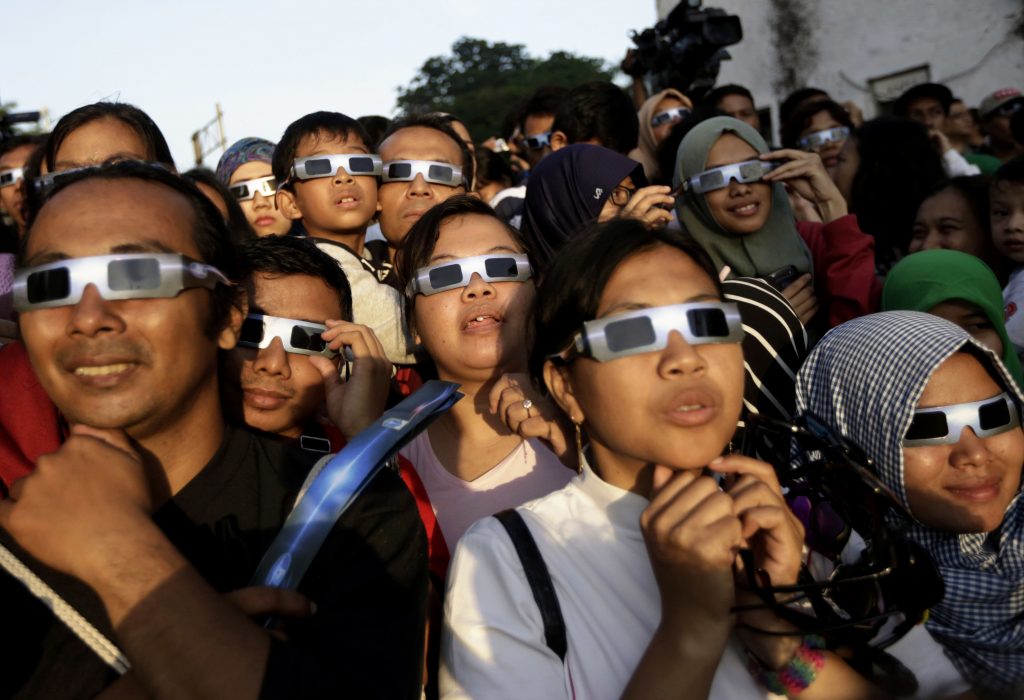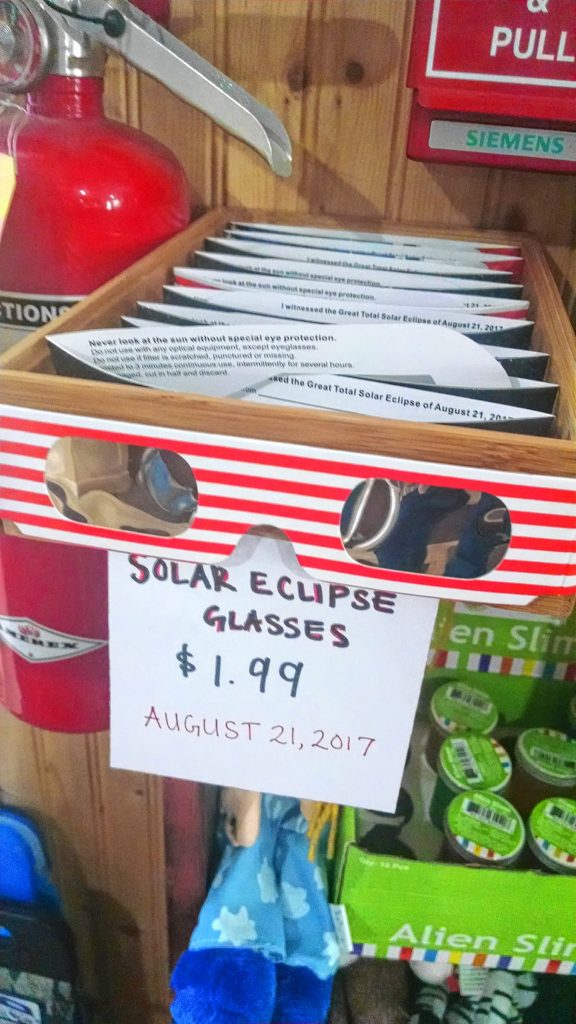Science lovers, rejoice. It’s that rare time again, when all Granite Staters will have an opportunity to see an eclipse of the sun. Monday is the day this celestial phenomenon will take place, and the McAuliffe-Shepard Discovery Center is prepared to celebrate with you.
The center has teamed up with the New Hampshire Science Teachers Association to plan a full day of activities leading up to a gathering outside, starting at 1:25 p.m., to view the solar eclipse.
“Here in Concord, we will get to see a partial eclipse at about 62 percent, which is pretty amazing,” said Sarah Hoffschwelle, director of education at the center.
What exactly is an eclipse, you ask? Well, beginning about 1:25 p.m. Monday, the moon will gradually move to block more and more of New Hampshire’s view of the sun, and over the next hour and 18 minutes, until maximum partial eclipse is reached at 2:43 p.m. From 2:43 to 3:55 p.m., the sun will gradually be restored to full brightness.
“Day will not become night, but if you know that it is happening, you should detect a difference in sunlight,” said Hoffschwelle. “You may notice animals reacting or being confused,” she added.
Joining in on the scientific action at the center will guarantee you and the kiddos are viewing the eclipse safely, because as you could guess, staring at the sun isn’t exactly good for you.
“Eclipse glasses ensure that you can view the sun safely,” Hoffschwelle said. “Without proper protection, you can go permanently blind if you try to observe the sun.”
The center is advising people to be very careful purchasing the glasses. Fakes are on the market, so people need to make sure they are purchasing from an approved manufacturer. The McAuliffe-Shepard Discovery Center and other informal education institutions (museums, science centers, libraries, etc.) are also a safe option for approved eclipse glasses, Hoffschwelle said.
Rain or shine, the center will host solar- and eclipse-themed activities, crafts, experiments, demonstrations and presentations throughout the day.
Here’s what the celebratory event schedule includes:
10:30 a.m. to 4 p.m.: Solar-related stations in the exhibit galleries with varying activities such as make a pin-hole camera; tour the observatory – weather permitting – to see sunspots and solar flares through the telescopes; solar and eclipse-themed crafts; meet and greet N.H. Science Teachers Association members; eclipse simulations; experiments with infrared and ultraviolet; spectroscopy; sundials.
10:45 a.m.: Kevin Skarupa, WMUR meteorologist, will host a gallery talk to discuss “The Nature and Impacts of the Sun.”
Noon: A live stream from NASA: Solar Eclipse Viewing along the path of totality as well as a planetarium show, Sunstruck.
1:25 to 3:55 p.m.: Gather outside the Discovery Center to watch the partial solar eclipse, guided by educators from the center and N.H. Science Teachers Association.
If the weather does not work in good favor and the skies are not clear, the only thing that will not be available is viewing of the eclipse. No matter what, there will be a showing of live broadcasts of totality from NASA and other educational sources.
Let’s keep our hopes up for blue skies, but if Mother Nature fails us, there’s still hope to be able see an eclipse again.
“For the next total solar eclipse on April 8, 2024, the path of totality will be going through Northern New England and Concord should be getting around 90 percent totality,” Hoffschwelle said.
Admission to the Discovery Center is $10 for adults, $9 for students and seniors, $7 for children 3 to 12 years old and free for members and children 2 years and under. Planetarium shows are an additional $5. Eclipse glasses are available in the center’s science store for $3 each.
And if you’re unable to make it to the activities, be sure to purchase your eclipse glasses so you can watch from your own backyard, office or vacation spot.










